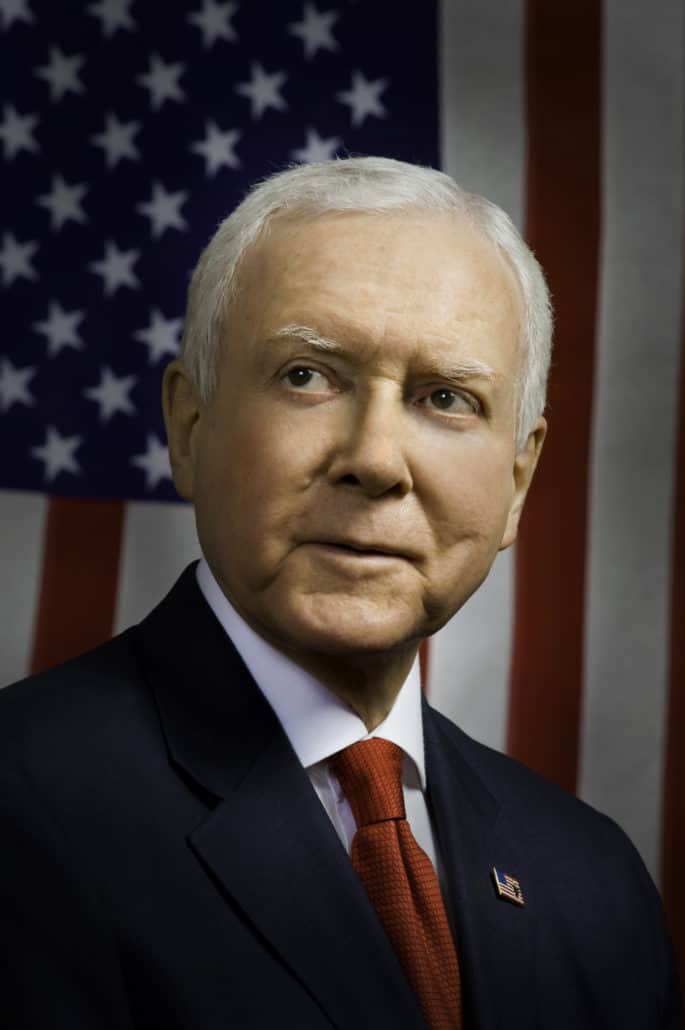SUTHERLAND INSTITUTE HOSTS CONGRESSIONAL EVENT SERIES
Featuring Senator Orrin Hatch
Sutherland is pleased to host United States Senator Orrin G. Hatch, senior member and former chairman of the Senate Judiciary Committee, to discuss Judge Brett Kavanaugh’s nomination to the United States Supreme Court. Senator Hatch has overseen the confirmation process of 13 United States Supreme Court Justices including the confirmation process of every current sitting member.
Please join us for an exclusive discussion with the senator on:
Thursday, August 9
Sutherland Institute
Gateway Tower West
15 W. South Temple, Suite 200, Salt Lake City, Utah
Parking is available in City Creek underground lot

SEATING IS LIMITED. THIS EVENT IS INVITATION-ONLY. PLEASE RSVP BY EMAILING CANDICE PIERUCCI AT [email protected].
Orrin Grant Hatch was born on March 22, 1934, to Jesse and Helen Hatch. He married Elaine Hansen of Newton, Utah, in 1957. Orrin and Elaine Hatch are the proud parents of six children, 23 grandchildren
Now in his seventh term as a Utah senator, Orrin Hatch is the most senior Republican in the Senate. Among his many initiatives
Senator Hatch continues to lead in the fight to repeal Obamacare. He is on the front lines of legislative battles to secure the nation’s borders, stop the forced unionization of American workers, and to bring fiscal restraint back to Washington by ending the reckless spending that threatens to bankrupt the nation.
Senator Hatch is the chairman of the Senate Committee on Finance. He is also a member (and former chairman) of the Judiciary Committee; a member (and former chairman) of the Senate Health, Education, Labor, and Pensions Committee; and a member of the Joint Committee on Taxation. He also has the honor of serving on the Board of Directors for the Holocaust Memorial Museum in Washington, D.C.
More Insights
Read More
App store regulations are necessary, constitutional, and popular
In the absence of age verification requirements, there are no limitations on what apps children or youth can download. This raises at least two significant concerns.
The (AI) doctor will see you now? Exploring the potential of artificial intelligence in healthcare
Could AI replace your doctor or simply help them better do their jobs?
How 16 Utah school districts are strengthening parental partnership through online access
Parents and schools are better education partners when schools provide parents with access to curriculum information and parents effectively utilize it to support their students.


